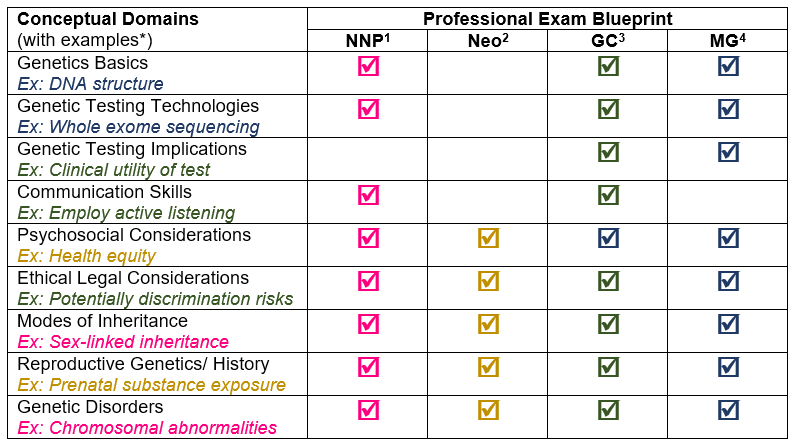Medical Education: Fellow
Medical Education 11: Fellow 2
550 - Divergent expectations of genetic knowledge for the providers of genetic medicine services in NICUs
Sunday, April 30, 2023
3:30 PM - 6:00 PM ET
Poster Number: 550
Publication Number: 550.325
Publication Number: 550.325
Emma Garval, Nationwide Children's Hospital, Columbus, OH, United States; Bimal Pankaj. Chaudhari, Nationwide Childrens Hospital, Columbus, OH, United States

Emma Garval, BA (she/her/hers)
Clinical Research Coordinator
Nationwide Children's Hospital
Columbus, Ohio, United States
Presenting Author(s)
Background: Many NICUs lack regular, on-site access to a genetic counselor (GC) or geneticist, leaving neonatologists and neonatal nurse practitioners (NNPs) to provide genetic services.
Objective: We sought to determine the degree of concordance between knowledge relevant to the provision of genetics services in the NICU expected of neonatologists, NNPs, medical geneticists (MGs), and GCs. . Poor concordance may guide development of genetics educational materials for neonatology providers and trainees.
Design/Methods: We reviewed blueprints for relevant professional certification exams: Neonatal-Perinatal Medicine Content Outline (Neonatology), Candidate Guide Neonatal Nurse Practitioner (NNP), ABMGG General/Clinical Genetics and Genomics Exam Blueprint and Content Codes (MG), and American Board of Genetic Counseling Inc. Examination Specifications (GC) to identify enumerated topics. Blueprints were iteratively compared and concepts relevant to the provision of genetic services in the NICU were identified by consensus to ensure a uniform level of granularity from divergent sources. Concepts were inductively grouped into domains allowing for a systematic comparison of the content in each blueprint (Fig. 1).
Results: We identified nine content domains relevant to the provision of genetic services in the NICU: Genetics Basics (1), Genetic Testing Technologies (2), Genetic Testing Implications (3), Communication Skills (4), Psychosocial Considerations (5), Ethical/Legal Considerations (6), Modes of Inheritance (7), Reproductive Genetics/History (8), and Genetic Disorders (9) (Table 1). Concepts in domains 5-9 were present in all blueprints, only the GC and MG blueprints covered domain 3. The neonatology document also omitted domains 1 and 2. Additionally, the neonatology and MG blueprints had less emphasis on communication, omitting domain 4. The neonatology, NNP, and MG blueprints placed a greater emphasis on detailing specific disorders, categorized by body system, while the GC documents took a more general approach, focusing on concepts of diagnosis, natural history, and progression.
Conclusion(s): We reveal gaps in the learning expectations of neonatologists, particularly with regards to basic genetics concepts, genetic testing technologies, genetic testing methodologies, and communications skills. This suggests that neonatologists would benefit from more extensive training in selected genetic counseling concepts and/or reorienting learning expectations away from specific disorders and towards the general approach of the provision of genetics services in NICUs.

.png)
